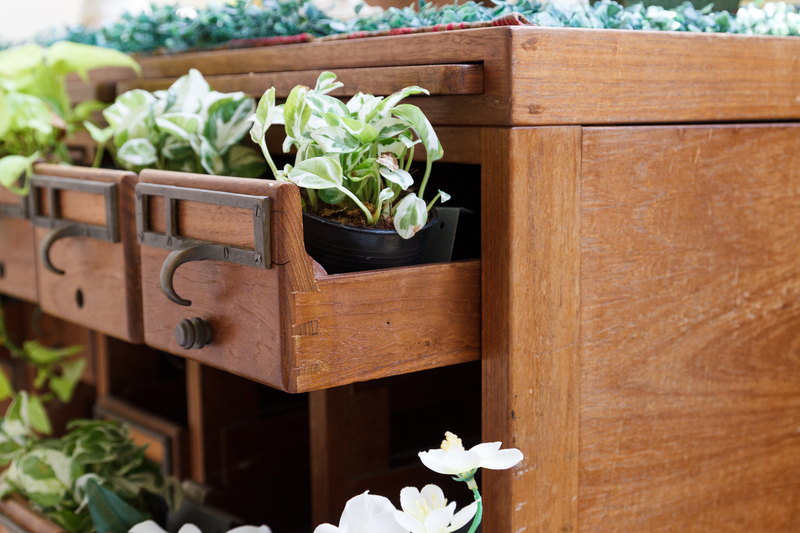Engage Students with Fun and Effective School Recycling Projects
Environmental education is essential in today's world. Schools play a critical role in nurturing eco-conscious generations. Engaging students with fun and effective school recycling projects is one of the best strategies to foster sustainability, promote teamwork, and make a real-world impact. In this comprehensive guide, we'll explore creative recycling project ideas, practical tips for implementation, and ways to maximize student participation and learning outcomes.
Why Focus on School Recycling Initiatives?
Promoting school recycling projects goes far beyond waste management. Well-designed programs reinforce science, social studies, and civic duty lessons, instilling lifelong green habits. Here's why recycling in schools matters:
- Environmental Impact: Reduces landfill waste and conserves resources.
- Educational Value: Offers hands-on learning and application of classroom concepts.
- Social Responsibility: Inspires students to be proactive citizens.
- Creativity and Teamwork: Encourages collaboration and innovation.

How to Launch a Recycling Project at Your School
Starting a successful school recycling program isn't just about placing bins around the building. It requires planning, student engagement, and ongoing encouragement. Follow these steps for an effective launch:
1. Build a Green Team
- Recruit kids across grades to join a student-led eco club.
- Assign leadership roles--like project managers, creative directors, and data collectors.
- Inviting teachers and facilities staff for support is also beneficial.
2. Assess Your School's Current Waste Practices
- Conduct a waste audit: Examine what's being thrown away in classrooms, cafeterias, and offices.
- Identify which materials can be recycled--paper, plastic, aluminum, food scraps, electronics, etc.
3. Set Achievable Recycling Goals
- Start small but dream big--set a target for reducing waste or increasing recycled materials monthly.
- For example, "Reduce paper waste by 30% in one semester."
4. Choose the Most Engaging Recycling Projects
- Involve students in the decision-making process for greater buy-in.
- Mix simple, everyday habit-building initiatives with high-impact, creative events.
5. Promote and Celebrate Successes
- Use posters, school announcements, and assemblies to spread the word.
- Reward top recyclers, classes, or grades with shout-outs, certificates, or small prizes.
Top Engaging and Fun School Recycling Project Ideas
To truly engage students with memorable recycling projects, make sustainability visible, interactive, and relevant:
1. Design a Classroom Recycling Challenge
Turn recycling into friendly competition! Encourage each class or grade to fill their recycling bins with select materials--like plastic bottles or paper. Measure and chart progress weekly. Reward the winning group with a pizza party or spirit day.
2. Host a "Trash Art" or Upcycle Fair
Combine creative arts with environmental stewardship.
- Invite students to transform clean recyclables into sculptures, functional items, or decorations.
- Display the masterpieces in a school exhibit or community event.
- Vote for the most innovative, useful, or beautiful creation.
3. Organize a School-Wide Recycling Drive
Choose a focus (electronics, plastic bags, old textbooks), set a collection period, and partner with local recycling companies.
- Track the quantity collected and report back to the school community.
- Invite guest speakers to explain what happens to recycled materials.
4. Make Recycled Paper in Science Class
Teach about the lifecycle of resources by making new sheets from old paper goods.
- Follow simple tutorials using blender-pulps, screens, and molds.
- Use the homemade paper for art projects, cards, or classroom notes.
5. Set Up Composting in the School Garden
Link recycling to food systems by collecting cafeteria food scraps and garden waste. Assign student compost monitors, track changes, and use the finished compost to nourish flower beds or vegetable gardens.
6. Start a Clothing or Book Swap Program
Encourage students and their families to bring gently used books or clothing to school swap days. This helps reduce landfill waste and support those in need in the local community.
- Organize themed swap events a few times per year.
- Donate unclaimed items to local charities.
7. Adopt a Community Recycling Spot
Take learning outside the classroom by managing a local recycling drop-off site as a service project.
- Offer regular clean-ups, monitor contamination, and educate community members about recycling rules.
- This project provides leadership and communication-building opportunities.
Getting Creative: Unique Variations of School Recycling Projects
Recycling Relay Races
Add fun and physical activity with recycling relays during field day or school spirit weeks. Teams race to sort "recyclables" and "waste" into the correct bins. It's a memorable, hands-on way to reinforce sorting rules for younger students.
Zero-Waste Lunch Challenges
Encourage kids to cut down on single-use plastics and food packaging by planning "Zero-Waste" lunches. Students share tips, design posters, and track how much waste is saved each month.
Technology Recycling Awareness Campaign
Host assemblies or video contests about the environmental impact of e-waste. Start a school phone or battery recycling program, educating communities about safe disposal.
Tips to Maximize Engagement and Project Success
- Integrate with Curriculum: Tie recycling projects to science, math (data analysis), art, and writing assignments for cross-curricular benefits.
- Student Leadership: Empower students to take initiative, plan activities, and lead presentations for their peers.
- Reward Effort: Publicly recognize progress, improvement, and creative contributions to keep momentum high.
- Engage Families: Send newsletters home, stage family challenge events, and encourage recycling at home to extend the impact.
- Leverage Technology: Use apps to track recycling rates, share progress on social media, or create digital recycling quizzes.
Making Recycling a Part of School Culture
For long-term success, recycling must become part of the daily routine and school identity. Here's how to weave environmental responsibility into your learning community:
- Consistent Reminders: Place clear, well-labeled bins in every classroom. Display fun posters with recycling facts and tips.
- Regular Feedback: Post progress and results in hallways or on the school website. Highlight star recyclers each month.
- Ongoing Education: Schedule guest speakers, field trips to recycling facilities, or virtual tours.
- Staff Training: Encourage teachers and custodians to model positive recycling behaviors.
Overcoming Common Challenges in School Recycling Projects
Even well-intentioned school recycling initiatives encounter hurdles. Here's how schools have overcome the most common obstacles:
- Contamination: Educate students on what's recyclable and what isn't. Use signs and visual guides to make sorting easier.
- Lack of Participation: Involve students in decision-making, celebrate even small wins, and keep the projects fresh with new ideas.
- Resources and Funding: Seek community sponsorships, apply for environmental education grants, or hold fundraising events to support recycling infrastructure.
- Long-term Motivation: Rotate leadership roles in your "Green Team" and give students ownership over ongoing projects.
Evaluating and Showcasing Your Recycling Program
Sustained engagement relies on tracking impact and sharing achievements. Develop simple evaluation tools:
- Waste Audits: Repeat audits periodically to compare before-and-after progress.
- Student Surveys: Ask for feedback about what students enjoy and how projects could improve.
- Celebration Events: Host assemblies, create digital slideshows, or submit press releases highlighting your school's eco leadership.
Document Your Success
Assign students to photojournalist or reporter roles, creating visual progress reports or "green team" newsletters. Share results with the greater community--parents, district leaders, and even local news outlets can help amplify your message.

Conclusion: Inspiring a Generation of Green Leaders
School is the perfect place to nurture sustainability and responsibility. By engaging students with fun and effective school recycling projects, educators foster critical thinking, leadership, and teamwork while protecting our planet.
The most successful school recycling activities combine practical learning with creativity and community involvement. Whether you're just starting or looking to energize an existing program, choose projects that suit your students and school culture, set achievable goals, and--most importantly--make it fun!
Together, we can inspire every student to be a steward of the environment--one recycled bottle, composted lunch, and upcycled art piece at a time.
Frequently Asked Questions on School Recycling Projects
- What are the best materials for school recycling projects?
Common recyclables in schools include paper, cardboard, plastic bottles, cans, food scraps (for composting), electronics, books, and clothing. Always check with your local recycling regulations. - How do you encourage students who aren't interested in recycling?
Start with high-energy competitions, creative projects, and student leadership opportunities. Relate recycling to students' lives and involve them in planning for greater buy-in. - Can recycling be integrated with school lessons?
Absolutely! Connect recycling to science, math (data collection), social studies (civic responsibilities), art (upcycling crafts), and writing (persuasive essays on sustainability). - What's the easiest recycling project for beginners?
Launching a classroom paper and plastic recycling program with clear labels and weekly checks is an effective starting point. Pair with a school-wide awareness campaign for best results.
For more inspiration on sustainable education, check your local environmental organizations, recycling facilities, and online resources dedicated to hands-on school recycling project ideas.
Start today--your efforts will shape the green leaders of tomorrow!